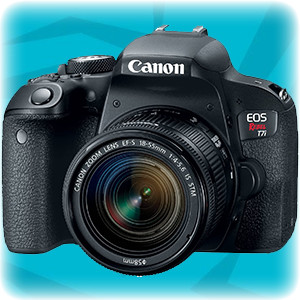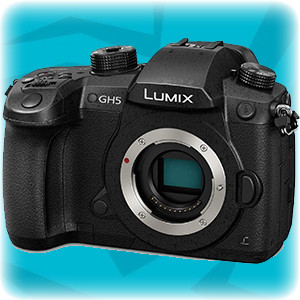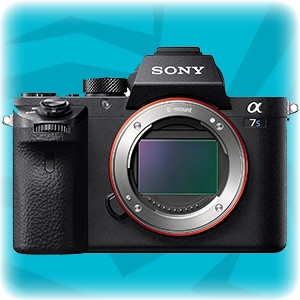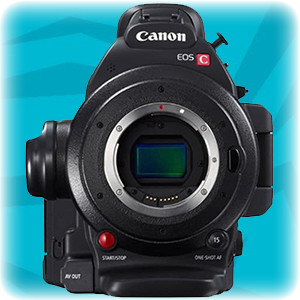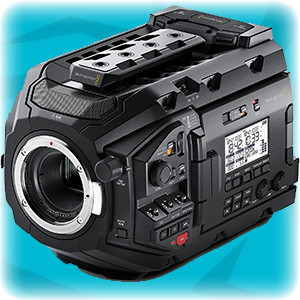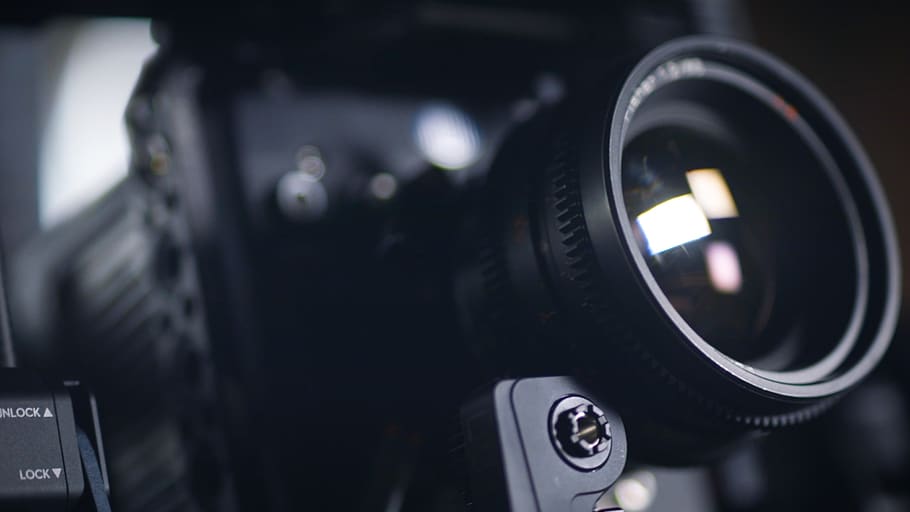
Every independent filmmaker knows how hard it is to shoot a film. Juggling between the deadlines of the project, limited budget, actors, and gear things start to get messy. Especially if you haven’t got your gear ready to get started. In the past, it was pretty hard to do shoot a movie without a sponsor, but thanks to everything becoming digitalized these days, and the prices of cameras and lenses coming down, everyone with the right project and determination can shoot his/her film.
For that reason today we will take a look at the best cameras for indie filmmaking. I will provide you an extensive guide to get your first camera in your film making career. You will check out the top picks, options that come from different price points, yet all of them deliver extensive value for their prices. Besides that, we will check out some tips when it comes to choosing a camera for that purpose and things you need to know about before you make a purchase. Now without further ado, let’s take a closer look.
| Image | Product | Rating | Price |
|---|---|---|---|
|
Best All-Purpose
 |
Blackmagic Design URSA Mini Pro 4.6K
|
10
|
Check Price On Amazon |
|
Best For Professionals
 |
Canon EOS C100 Mark II
|
9.8
|
Check Price On Amazon |
|
Best For Low-Light
 |
Sony a7S II
|
9.6
|
Check Price On Amazon |
|
Best Stabilization
 |
Panasonic LUMIX GH5
|
9.5
|
Check Price On Amazon |
|
Best For The Money
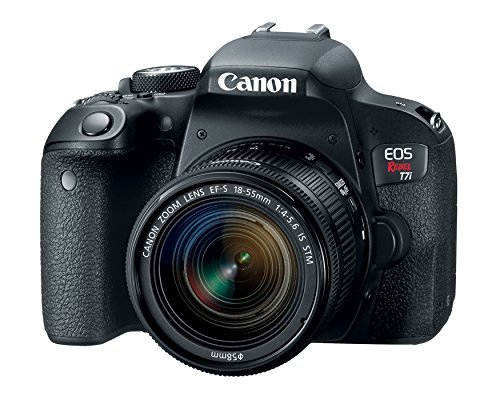 |
Canon EOS Rebel T7i
|
9.2
|
Check Price On Amazon |
The 5 Best Cameras For Indie Filmmaking
5. Canon EOS Rebel T7i
We are going to start this list with a pretty interesting option coming in, the Canon EOS Rebel T7i. This is a DSLR camera that was released for the enthusiast market but it is also a great choice for beginner photographers and videographers, since it is cheap, delivers excellent qualities, amazing value for the price and ease of use.
This camera has a pretty lightweight design thanks to its aluminum alloy and polycarbonate construction that weighs just 532 grams in total. The controls are pretty classic like most cameras in the EOS range delivering great and intuitive creative freedom for every user.
The Canon EOS Rebel T7i has a 24MP APS-C sensor with the famous Dual Pixel design. It also has an autofocus system with 45 points and it works rather fast when recording videos. It can record video at 1080p with 60 frames per second. The most surprising thing was that it had an electronic image stabilization system that worked to perfection.
4. Panasonic Lumix GH5
If you have followed Panasonic’s GH series you already know that the video prowess of this camera is better than most of its competitors, and the Lumix GH5 is perfect overall. It delivers great versatility, superb performance, durable body, and amazing value for the price which I didn’t expect from this camera.
The Panasonic Lumix GH5 is one hell of a camera, delivering plenty of durability for a mirrorless camera. It is a little larger than its predecessor but it has a magnesium alloy body and a super large handgrip. On top of all that it is fully weather-sealed and it is freeze proof down to -10 degrees Celsius, which is marvelous.
The Panasonic Lumix GH5 is equipped with a micro four-thirds 20.3MP CMOS sensor. It can also record 4K video with 10-bit DCI/UHD output. It also has a 4.2.2 chroma sub-sampling to the SD card directly, but also through the HDMI port. With its ability to record in 50 and 60 frames per second, this beast will be handy to every indie cinematographer.
If you decide to go with this camera, you should read our Panasonic GH5 Lens buying guide too.
3. Sony Alpha a7S II
A few years ago Sony released the Alpha a7S II, which was released especially for cinematographers. While it can also shoot some stills it has just 12MP resolution for stills, but all of its qualities have gone into its video capabilities and if you are into that, it doesn’t get better than the Sony Alpha a7S II.
The camera is built to be held pretty comfortably in hand and it is also pretty light. The handgrip is pretty big and deep and on the back, you will see the textured thumb grip. The controls of this camera are specifically modified to fit the needs of those that shoot video, and I have to say that they work perfectly.
Its video performance consists of the UHD 4K footage recording capability with the full width of the sensor at 60 frames per second. However, you can also record at Full HD 1080p up to 120 frames per second. The autofocus performance stays perfect all the time and it records rather well even in low light scenarios.
2. Canon EOS C100 Mark II
The runner up on this list is the Canon EOS C100 Mark II. This is a professional level cinema camera that has a DSLR sized sensor and uses the company’s EF mount lenses to deliver a priceless performance. Also when you consider that this camera is pretty affordable these days, it is one of the most attractive models.
The most important feature of the Canon EOS C100 Mark II is that it is equipped with a super large sensor, that is named Super 35mm CMOS, which is the size of the APS-C sensors on regular DSLRs. From which it shoots video with 8.29MP resulting in a Full HD 1080p video.
One of the most interesting advantages of the Canon EOS C100 Mark II is that it uses the Canon EF lens mount, which is one of the most popular in the market, meaning that you have a super-wide selection. On top of that, it has all the needed outputs for professional setups which is extremely attractive for most cinematographers.
1. Blackmagic Design URSA Mini Pro 4.6K
If you are thinking of a fully professional set up and have a relaxed budget than I have to suggest you the Blackmagic Design URSA Mini Pro 4.6K. This camera is a beast delivering a wide range of features and performances that will be enough even for the most nit-picky users.
The biggest selling point of this amazing camera is its amazing resolution and dynamic range. It records footage at 4608×2592 pixels that like its name implies is 4.6K resolution. It does that thanks to its Super35 sensor and when you are shooting in the raw mode you can get 15 stops of the dynamic range which is more than you would expect from a system of this price.
At maximum resolution, it can record at 60 frames per second and 120 frames per second at Full HD 1080p. You can also achieve a 16-bit image at CinemaDNG Raw. While it is a little expensive it offers a lot for its premium price, the best overall.
If you decide to go with this one, i recommend you also get a gimbal for BMPCC 4K, or read about the best lenses for the Blackmagic Pocket 4K camera.
You Might Also Be Interested In:
- Best Lenses For Nikon D7100
- Best Lenses For Music Videos
- Best Cameras For Music Videos
- Best DSLR Cameras With WiFi
Things You Should Know About Cameras for Indie Filmmaking
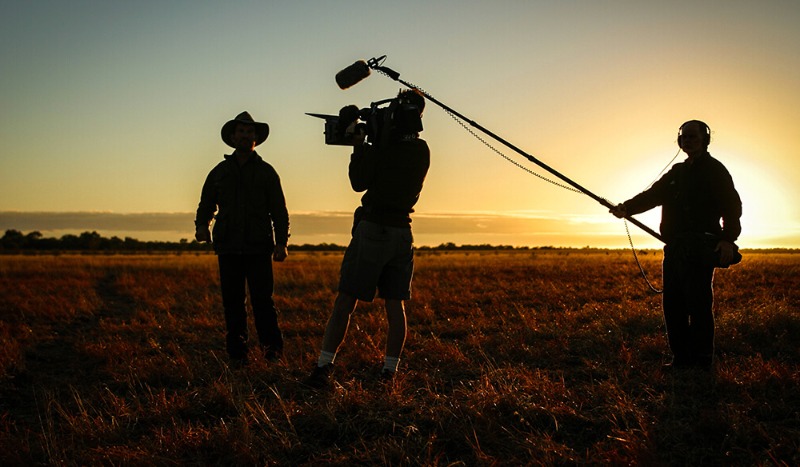
Some things will reveal if a camera is good or bad for you. I think that if you stick within these tips you will get yourself the best camera for your needs. Let’s take a closer look.
Primary Use
Look there is no arbitrary decision here, but you have to decide the kind of film you will shoot. Is it going to be a cinema film that you intend to show it in theaters and film festivals, or is it just going to be a short film for the internet? Y
ou have to be subjective here and honest with yourself. It will be easier for you to choose something that you will use mostly and utilize its full potential, than buying something like a full-blown cinema camera that will be utilized just partly. It is not viable to buy a super-advanced piece of equipment if you aren’t going to take full advantage of it, not smart at all and waste of investment. So the earlier you decide about this the better off you will be in the long run.
If you plan to shoot a short documentary, i recommend you take a look at our documentary camera reviews instead.
Budget
After you decide on the primary use of the camera you have to think about how much can you afford to spend on a camera. You can gather a bit form small sponsors here and there, but film projects are costly and you have to be ready for unexpected expenses. For that reason, it is important to set a thoughtful budget for your camera.
Don’t go overboard here think about the primary use, but whatever you get, look to get the most value for your money. Fortunately, there are some amazing cameras out there that fit into different budgets but that still delivers amazing value for their prices. I also recommend you read our article about the best budget cinema cameras for more budget-friendly options.
On the other hand, if you have the money, you can get one of the best 8k cameras we recommend if you want hollywood grade quality.
Type
Indie filmmakers have several options when it comes to the type of camera that they go for, but it will all depend on the budget and primary use of the camera so, let’s check them out.
Camcorders
While some deliver some excellent results with camcorders, in my opinion, they are your last resort. Well, they are more affordable than the other types, but still, you have some DSLR options that are very affordable and can surpass the performance of a camcorder without a doubt.
Depending on the model camcorders have some great advantages that make them relatively better than some DSLR models. For example, they have some superb video quality and a great audio capturing performance. Also, camcorders perform well in low-light situations. Most of these have XLR inputs for connecting professional level microphones. They are also very easy to operate and fun to use, but the versatility is a weak point here.
DSLR and Mirrorless Systems
Next up we got DSLR cameras and mirrorless interchangeable lens cameras, which I put into the same category for film making. The biggest advantage of these cameras over camcorders is that they are extremely versatile and that in several aspects. Firstly you should know that these can take still photographs as well, and the best thing is that they have interchangeable lenses that allow you to repurpose them differently. In addition to all this, they have some great creative controls that let you shoot your film like you intend to. Moving on I should state that their autofocus systems are pretty much perfect and the latest hybrid systems track even super fast-moving subjects without any difficulty. If I had to pick one type of camera for beginners this would be it, for all the reasons stated above.
Cinema Cameras
Now, this is the top of the crop, these are dedicated cameras to record films. However, they are pretty expensive models and cannot shoot stills like DSLRs and mirrorless systems. They are the perfect choice for those that are serious about filmmaking, since these cameras deliver excellent performance for video, have interchangeable lenses, superb focus, extensive controls that are specially placed for video and so much more. With these cameras, you will be able to shoot for every format as they are professional options.
Features
Some features are necessary and would make your job much easier, so let’s take a look.
Lens
This is mostly important for camcorders, but you should check out the lens you are going to use regardless of the type. Check to see the optical zoom range of your lens, both in and out as it will determine how close and far you can be from the action. While you might like a lens on a camcorder initially the beauty of an interchangeable lens camera is that you can swap for a different one as you progress your skills and style.
Along with a lens, a camera slider will help you in your filmmaking journey.
Video Quality
The video quality is a big factor when choosing a camera for shooting films. You got several choices here, HD 720p, Full HD 1080p, and Ultra HD or 4K resolution. The higher the resolution, the higher the quality of your video, and also the file will be much bigger. The quality you need will depend on the seriousness of the film you are creating and where you will show it.
Ease of Use
You have to choose a camera that you can operate properly. This will mostly depend on your skill level and what techniques you will use. If you are confident in your skills and want to use complicated techniques than yes you should get a camera with the most controls. But if you need something simple and do not have the most extensive skill set you might want to take a look at our beginner film camera recommendations. Then again don’t forget that you can learn everything in the process.
Verdict
There you have it, your guide to buying the best camera for indie filmmaking. I think that now you are ready to buy the best camera for your needs and you won’t be mistaken now and in the future. I should also state that the tools you use are a means to an end, and not the end themselves. So don’t dwell on it, not every film must look beautiful, but it must fit the context, so go on and have fun.

Wedding Photographer
From nature to urban landscapes, my camera is my tool for expressing my creativity and telling stories through my lens.
